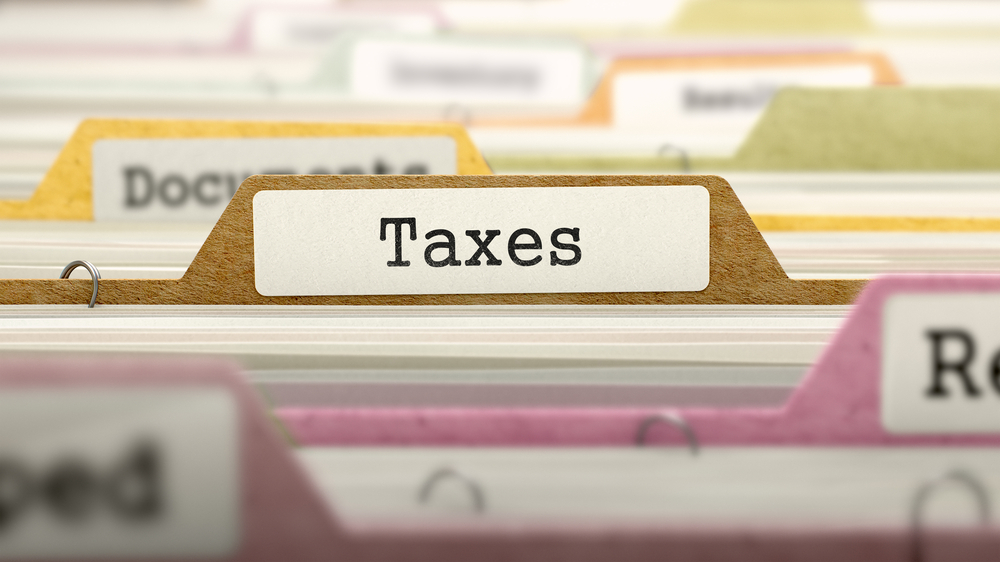By Andrew Hickey on Mar 29, 2023 11:27:00 AM
If you are an insurance broker preparing for tax season, you may be unsure where to start. It can be daunting for the average person, let alone for someone with a small business. That’s why we’re here to help simplify the process.
Key Takeaways:
- Organizing tax documents is essential to avoid missing key details.
- Self-employed brokers can access unique tax deductions.
- Business expenses are tax-deductible if deemed ordinary and necessary.
- Using tools to efficiently track expenses and receipts for deductions can significantly help you keep track of your business expenses.
-
Hiring a CPA is a smart, cost-effective choice to prevent filing errors and maximize tax returns.
Top Broker Tax Deductions:
Some of your biggest business expenses may include:
- Office/building rent or home office space: also include phone and internet bills.
- Advertising: Everything from Facebook ads to business cards.
- Continuing Education and training: State licenses, AHIP fee, and Continuing Education (CE) classes.
- Travel: Vehicles, flights, hotels, and even parking costs.
- Your CRM, scheduling system, and website maintenance costs.
The last day to file your taxes is April 15th. For a full overview of the process please refer to Publication 535.You can search easily by keywords. Now, let’s get into it!
Organizing your tax documents:
We've all been guilty of it; waiting until the last minute to get all our tax information together. Then we rush around gathering, usually with one piece of documentation completely missing. We go digging through the entirety of our office to find it.
The documents you need for tax prep depend on your situation. Be sure to gather documents that have your personal information, dependent(s) information, source of income, and any tax deductions you plan to make.
The tax advantages of being a broker:
Many insurance brokers and agents are self-employed. This unique business situation allows for tax deductions that may not be available to the average office worker. If you report your income as sole proprietorship, you might be entitled to a deduction of up to 20% of qualified business income. This is known as the qualified business income (QBI) deduction.
What counts as a deduction?
According to the IRS Business Expenses document (Publication 535), your business expenses can be deducted from your taxes so long as they’re considered “ordinary and necessary” for your business. An ordinary expense is a common or accepted expense in your industry. A necessary expense is one that’s helpful and appropriate for your business.
If you have a home office that is used regularly and exclusively for work, you can file for a tax deduction for the space. You must receive 1099 income as a contractor or self-employed worker. Full-time employees with W-2 earnings are not eligible. Here is a breakdown of what can be claimed and what is needed:
- Car allowance (Form 1040): Mileage, gas, parking fees, tolls, repairs
- Continued education (Form 1040): state licenses, renewals, courses, certifications, subscriptions to trade journals, books.
- Insurance (Form 2106, Form 1040): Business, vehicle, health and dental, part of your homeowner’s insurance
- Work-Related Travel (Form 2106): Meals and entertainment, flights and baggage fees, taxis, hotels, tips
- Office space and supplies (Form 8829, Form 1040): Utilities, telephone and internet service, home office repairs and maintenance, computer equipment and software, stationary
- Miscellaneous expenses (Schedule A, Schedule C): Advertising, charitable contributions, tax preparation fees
Prepare for the future:
As a broker, it’s part of your job to keep track of your business expenses and receipts. Get into the habit of filing away your documents and receipts right away.
You can pull your documents out and put them back in their place a few times. You can also outline your filing process in a spreadsheet. Coupled with the previous tip, it will help reduce the chance of losing your documents when you need them.
You can also take a picture of your receipts and save them to a cloud storage drive using an app like Evernote Scannable or Expensify. Also consider using an app to track your deductions such as MileIQ or TripLog for tracking car mileage or Xero for automated business expense reporting.
How to file your taxes:
The U.S. Small Business Administration has a helpful website to assist you in paying your taxes appropriately.
- Standard option: If you keep all your receipts and invoices, you can deduct 100% of some expenses. These include maintenance and repairs to the home office area. You can also deduct other costs like your mortgage interest, rent, utilities, homeowners insurance and cleaning fees based on the size of your home office. For example, if your home office is one-tenth of the square footage of your house you can deduct 10%.
- Simplified option: If you do not keep records of all your home office expenses, you can deduct $5 per square foot of your home office (up to 300 square feet) for a maximum deduction of $1,500.
Hiring a CPA:
An additional tip is to consider working with a tax professional who will help you avoid making any mistakes during filing and ensure you get the most out of your tax return. Hiring a CPA (Certified Public Accountant) can pay for itself. They are specifically licensed and will help find every deduction for you.
The information in this blog is based on Solstice's review of the publicly available materials and is not intended to provide legal advice. While we make every effort to present and update accurate information, interpretations can vary. The overviews provided here are intended as an educational tool only and should not be relied upon as legal or compliance advice. For legal advice, please contact your attorney.





comments